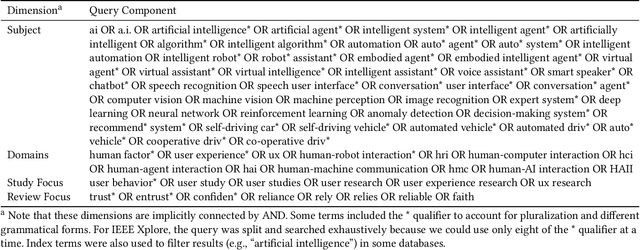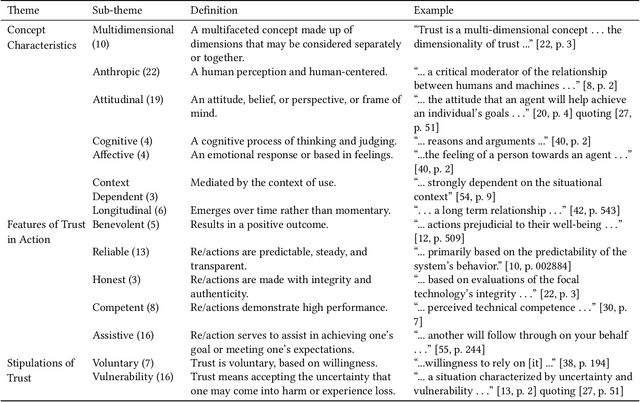Yuto Sawa
Coimagining the Future of Voice Assistants with Cultural Sensitivity
Mar 26, 2024Abstract:Voice assistants (VAs) are becoming a feature of our everyday life. Yet, the user experience (UX) is often limited, leading to underuse, disengagement, and abandonment. Co-designing interactions for VAs with potential end-users can be useful. Crowdsourcing this process online and anonymously may add value. However, most work has been done in the English-speaking West on dialogue data sets. We must be sensitive to cultural differences in language, social interactions, and attitudes towards technology. Our aims were to explore the value of co-designing VAs in the non-Western context of Japan and demonstrate the necessity of cultural sensitivity. We conducted an online elicitation study (N = 135) where Americans (n = 64) and Japanese people (n = 71) imagined dialogues (N = 282) and activities (N = 73) with future VAs. We discuss the implications for coimagining interactions with future VAs, offer design guidelines for the Japanese and English-speaking US contexts, and suggest opportunities for cultural plurality in VA design and scholarship.
* 21 pages
Exoskeleton for the Mind: Exploring Strategies Against Misinformation with a Metacognitive Agent
Apr 18, 2023Abstract:Misinformation is a global problem in modern social media platforms with few solutions known to be effective. Social media platforms have offered tools to raise awareness of information, but these are closed systems that have not been empirically evaluated. Others have developed novel tools and strategies, but most have been studied out of context using static stimuli, researcher prompts, or low fidelity prototypes. We offer a new anti-misinformation agent grounded in theories of metacognition that was evaluated within Twitter. We report on a pilot study (n=17) and multi-part experimental study (n=57, n=49) where participants experienced three versions of the agent, each deploying a different strategy. We found that no single strategy was superior over the control. We also confirmed the necessity of transparency and clarity about the agent's underlying logic, as well as concerns about repeated exposure to misinformation and lack of user engagement.
* Pages 209-220
Trust in Human-AI Interaction: Scoping Out Models, Measures, and Methods
Apr 30, 2022

Abstract:Trust has emerged as a key factor in people's interactions with AI-infused systems. Yet, little is known about what models of trust have been used and for what systems: robots, virtual characters, smart vehicles, decision aids, or others. Moreover, there is yet no known standard approach to measuring trust in AI. This scoping review maps out the state of affairs on trust in human-AI interaction (HAII) from the perspectives of models, measures, and methods. Findings suggest that trust is an important and multi-faceted topic of study within HAII contexts. However, most work is under-theorized and under-reported, generally not using established trust models and missing details about methods, especially Wizard of Oz. We offer several targets for systematic review work as well as a research agenda for combining the strengths and addressing the weaknesses of the current literature.
* Accepted at CHI EA '22
 Add to Chrome
Add to Chrome Add to Firefox
Add to Firefox Add to Edge
Add to Edge